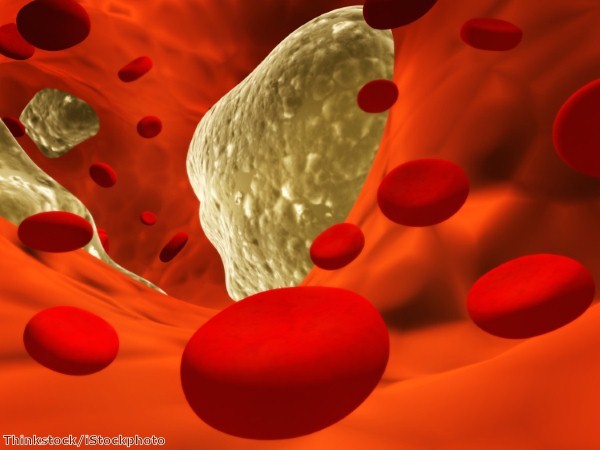Researchers have uncovered a possible explanation for the observation that stress, emotional shock, or overexertion may trigger heart attacks in vulnerable people.
Hormones released during such events may cause bacterial biofilms on arterial walls to disperse and this could allow plaque deposits to rupture into the bloodstream.
"Our hypothesis fitted with the observation that heart attack and stroke often occur following an event where elevated levels of catecholamine hormones are released into the blood and tissues, such as occurs during sudden emotional shock or stress, sudden exertion or over-exertion" said Professor David Davies of Binghamton University, New York, an author on the study.
The research team isolated and cultured different species of bacteria from diseased carotid arteries that had been removed from patients with atherosclerosis.
They found multiple bacterial species living in the walls of every atherosclerotic (plaque-covered) carotid artery tested.
Biofilms contain communities of microbes that are resistant to antibiotic treatment and clearance by the immune system.
When they receive certain molecular signals they disperse and release enzymes that break down the scaffolding that maintain the bacteria within the biofilm. These enzymes could dissolve the nearby tissues that prevent the arterial plaque deposit from rupturing into the bloodstream.
An experiment was conducted to test the theory by adding norepinephrine, at a level that would be found in the body following stress or exertion, to biofilms formed on the inner walls of silicone tubing.
Professor Davies said at least one species of bacteria was able to undergo a biofilm dispersion response when exposed to norepinephrine.
The dispersal of a biofilm could trigger the sudden release of the surrounding arterial plaque and lead to a heart attack.
Managing bacteria within an arterial plaque lesion may therefore be as important as managing cholesterol, the research suggests.
Almost 160,000 people in the UK died of cardiovascular disease in 2011 and 74,000 of these deaths were caused by coronary heart disease, making it the country's biggest killer.

